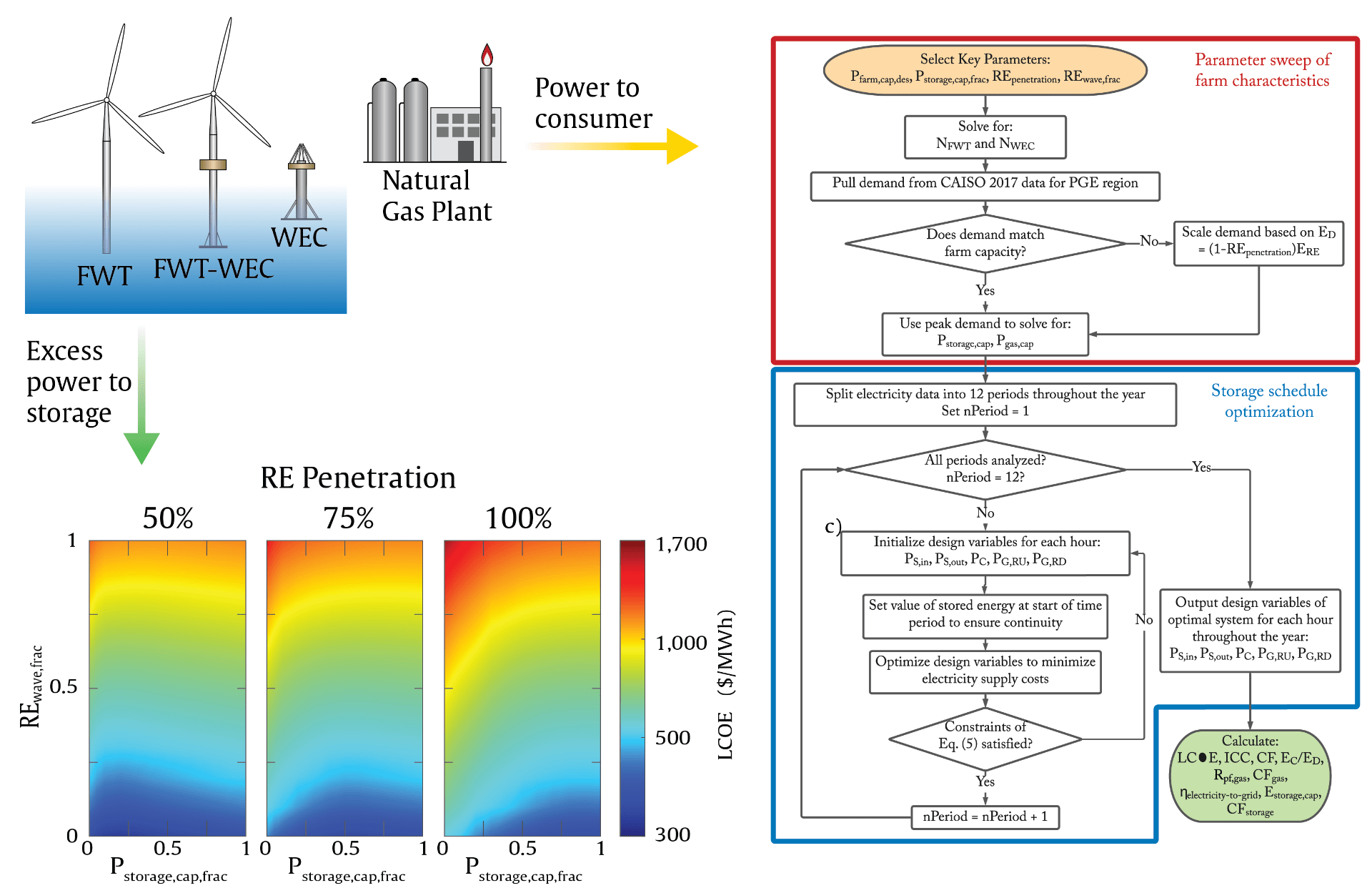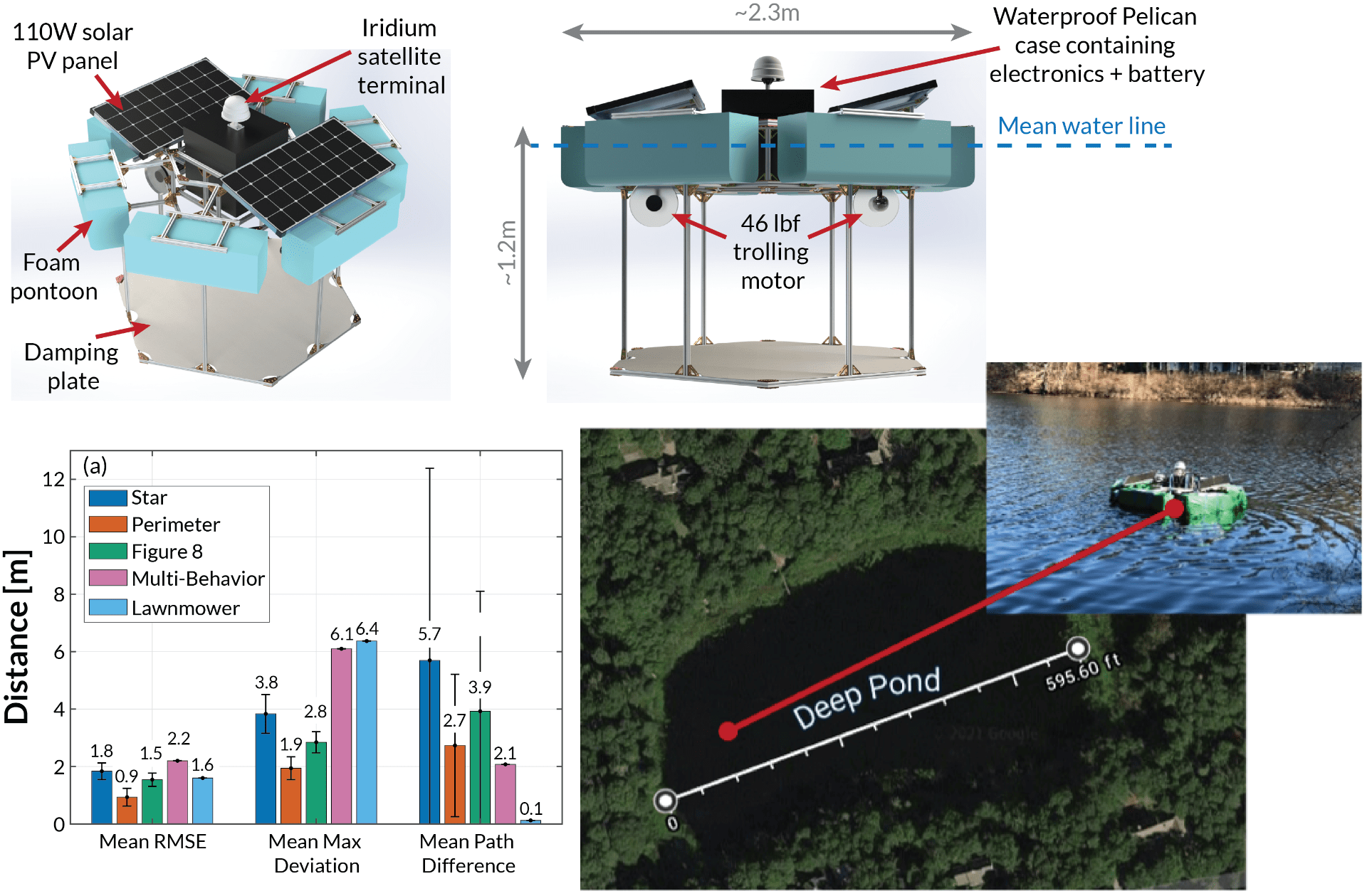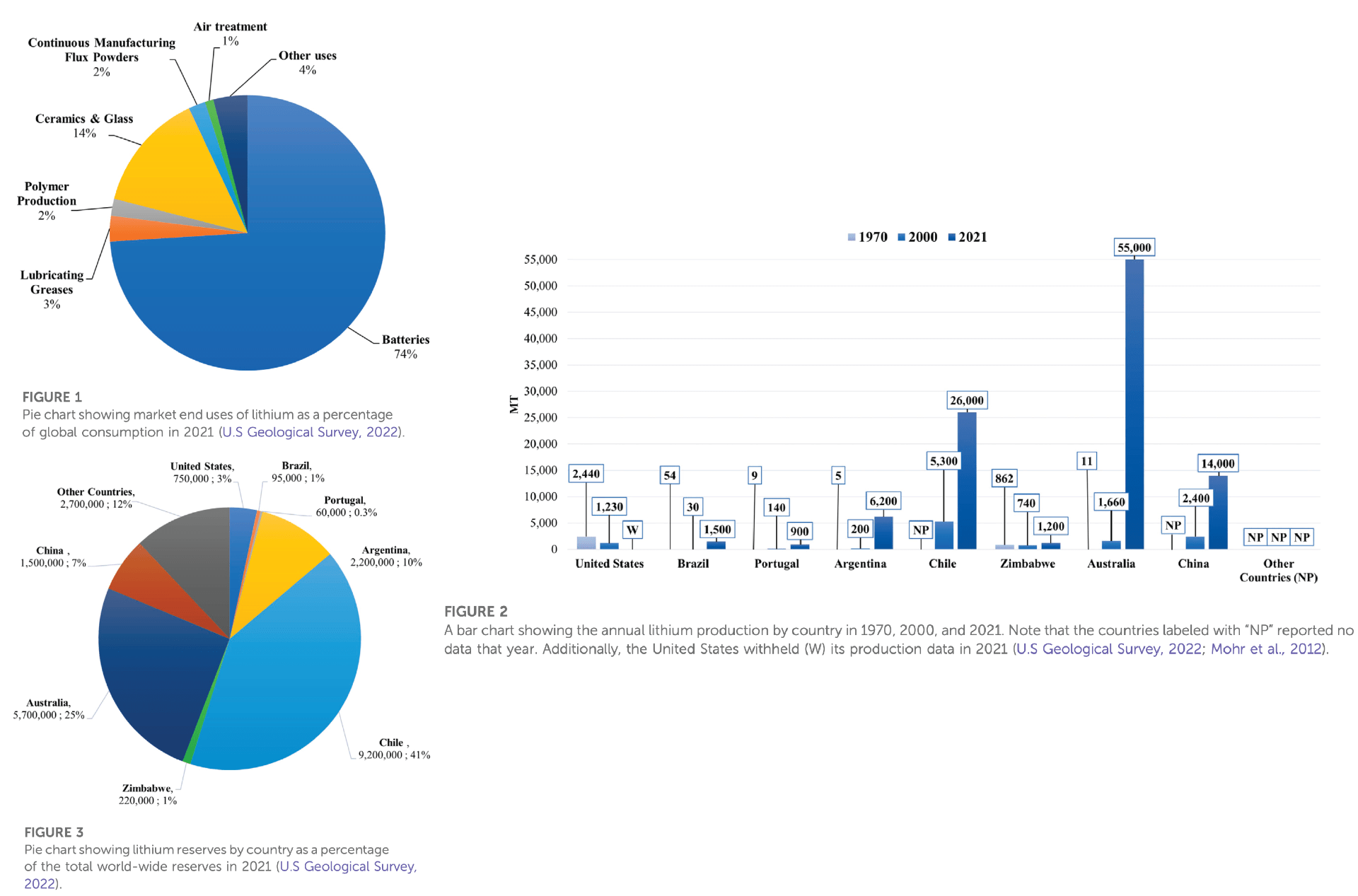The Symbiotic Engineering and Analysis Lab develops interdisciplinary engineering solutions to advance offshore technologies vital to the growth of the Blue Economy* and long-term environmental resilience. The SEA Lab is led by Professor Maha Haji in the Sibley School of Mechanical and Aerospace Engineering at Cornell University.
The Symbiotic Engineering and Analysis Lab develops interdisciplinary engineering solutions to advance offshore technologies vital to the growth of the Blue Economy* and long-term environmental resilience. The SEA Lab is led by Professor Maha Haji in the Sibley School of Mechanical and Aerospace Engineering at Cornell University.
Research
Systems Engineering
Integrating systems to better provide mutually beneficial relationships with the oceans.
Mineral Extraction
Harvesting tech-essential minerals from seawater, including uranium, cobalt, and lithium.
Offshore Energy
Harnessing and storing the energy at sea to meet the energy needs of tomorrow.
Aquaculture
Reliably and cost-effectively expanding aquaculture farms further offshore.
Research
Systems Engineering
Integrating systems to better provide mutually beneficial relationships with the oceans.
Mineral Extraction
Harvesting tech-essential minerals from seawater, including uranium, cobalt, and lithium.
Offshore Energy
Harnessing and storing the energy at sea to meet the energy needs of tomorrow.
Aquaculture
Reliably and cost-effectively expanding aquaculture farms further offshore.
News
HetWECs Project Featured by TEAMER
HetWECs was featured by Testing and Expertise in Marine Energy (TEAMER). This project investigates heterogenous WEC arrays and analyzes their hydrodynamic interactions. Learn more through their video feature here!
July 8th, 2025
PhD Becca McCabe Awarded Provost Diversity Fellowship
PhD candidate Rebecca McCabe has been awarded the Provost Diversity Fellowship through Cornell. The Provost Diversity Fellowship is a competitive one‐term dissertation completion fellowship designed to advance diversity, access, equity, and inclusion. More information about the fellowship can be found here. Congrats, Becca!
June 25th, 2025
PMEC Features HetWECs Prototyping Project
The Pacific Marine Energy Center (PMEC) featured the HetWECs prototyping project. The project, funded by TEAMER and the Cornell Atkinson Center, involved designing and manufacturing 8 wave energy converter (WEC) prototypes and conducting an experimental campaign at the O.H. Hinsdale Directional Wave Basin. The team investigated WEC array interactions in heterogeneous arrays, containing both heaving point absorbers and oscillating surge WECs. Check out the full article here.
June 12th, 2025
PhD Nate DeGeode Passes His A Exam
Now PhD candidate Nate DeGeode passed his Admission to Candidacy (A) Exam! DeGeode’s research focuses on improving modeling techniques and designs for wave-powered desalination systems, including improved dynamics modeling, accurate economic estimates, innovative optimization techniques, and more. View the recording of the live presentation here.
June 10th, 2025
Congrats SEA Lab Grads!
Congratulations to Noam Werners, Cecily Pokigo, Pat O’Connor, Heisen Kong, Michelle Yu, En Lo, and Ehina Srivastava who all graduated this year. Thank you for your contributions to the SEA Lab – we can’t wait to see what you do next!
May 18th, 2025
News
HetWECs Project Featured by TEAMER
HetWECs was featured by Testing and Expertise in Marine Energy (TEAMER). This project investigates heterogenous WEC arrays and analyzes their hydrodynamic interactions. Learn more through their video feature here!
July 8th, 2025
PhD Becca McCabe Awarded Provost Diversity Fellowship
PhD candidate Rebecca McCabe has been awarded the Provost Diversity Fellowship through Cornell. The Provost Diversity Fellowship is a competitive one‐term dissertation completion fellowship designed to advance diversity, access, equity, and inclusion. More information about the fellowship can be found here. Congrats, Becca!
June 25th, 2025
PMEC Features HetWECs Prototyping Project
The Pacific Marine Energy Center (PMEC) featured the HetWECs prototyping project. The project, funded by TEAMER and the Cornell Atkinson Center, involved designing and manufacturing 8 wave energy converter (WEC) prototypes and conducting an experimental campaign at the O.H. Hinsdale Directional Wave Basin. The team investigated WEC array interactions in heterogeneous arrays, containing both heaving point absorbers and oscillating surge WECs. Check out the full article here.
June 12th, 2025
PhD Nate DeGeode Passes His A Exam
Now PhD candidate Nate DeGeode passed his Admission to Candidacy (A) Exam! DeGeode’s research focuses on improving modeling techniques and designs for wave-powered desalination systems, including improved dynamics modeling, accurate economic estimates, innovative optimization techniques, and more. View the recording of the live presentation here.
June 10th, 2025
Congrats SEA Lab Grads!
Congratulations to Noam Werners, Cecily Pokigo, Pat O’Connor, Heisen Kong, Michelle Yu, En Lo, and Ehina Srivastava who all graduated this year. Thank you for your contributions to the SEA Lab – we can’t wait to see what you do next!
May 18th, 2025
Selected Publications
Integrated Pumped Hydro Reverse Osmosis System optimization featuring surrogate model development in Reverse Osmosis modeling
M. W. Haefner and M. N. Haji
Applied Energy, 352, 121812, 2023
The power balancing benefits of wave energy converters in offshore wind-wave farms with energy storage
J. M. Kluger, M. N. Haji, and A. H. Slocum
Applied Energy, 331, 120389, 2023.
Autonomous control of a prototype solar-powered offshore autonomous underwater vehicle servicing platform via a low-cost embedded architecture
E. Rolland, M. N. Haji, and O. L. de Weck
Journal of Field Robotics, 1-20, 2023.
A review of technologies for direct lithium extraction from low Li+ concentration aqueous solutions
O. Murphy and M. N. Haji
Frontiers in Chemical Engineering, 4, 2022.
Selected Publications
Integrated Pumped Hydro Reverse Osmosis System optimization featuring surrogate model development in Reverse Osmosis modeling
M. W. Haefner and M. N. Haji
Applied Energy, 352, 121812, 2023
The power balancing benefits of wave energy converters in offshore wind-wave farms with energy storage
J. M. Kluger, M. N. Haji, and A. H. Slocum
Applied Energy, 331, 120389, 2023.
Autonomous control of a prototype solar-powered offshore autonomous underwater vehicle servicing platform via a low-cost embedded architecture
E. Rolland, M. N. Haji, and O. L. de Weck
Journal of Field Robotics, 1-20, 2023.
A review of technologies for direct lithium extraction from low Li+ concentration aqueous solutions
O. Murphy and M. N. Haji
Frontiers in Chemical Engineering, 4, 2022.
*The Blue Economy is defined by the United Nations as an ocean economy that aims at “the improvement of human well-being and social equity, while significantly reducing environmental risks and ecological scarcities” (UN, 2014, p.2)
*The Blue Economy is defined by the United Nations as an ocean economy that aims at “the improvement of human well-being and social equity, while significantly reducing environmental risks and ecological scarcities” (UN, 2014, p.2)



